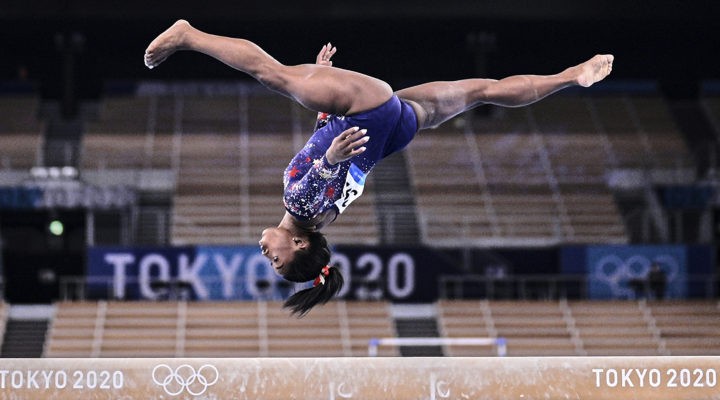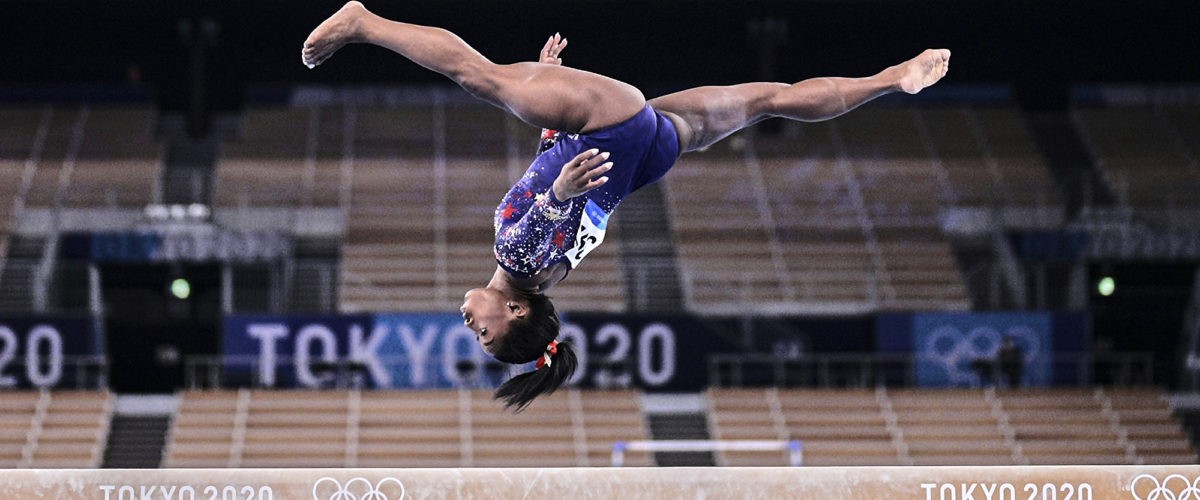“She quit on her team.” If we were playing a popular social media game called “Poorly Describe What You Do Using Five Words,” that might be how someone would answer for the young Olympic gymnast, Simone Biles. If we were only watching what recently happened in her world on the surface, that might seem accurate.
In my line of work, though, we have the dubious task of looking at things more deeply. On the surface, we could speculate the price she’ll surely pay for stepping back from the pressure. My gut tells me that Simone’s honest move will be met with far less of the big-paying endorsement deals she would have had. I’m guessing she will soon move off the A-list for corporate events, celebrity gatherings and the like. The price for admitting that life has gotten too big and too fast is often steep.

Charles Qualls
I wince at the reality that many will brand her a quitter. We are not accustomed to seeing the greatest in the sports world reach the crowning moment only to stop short. She’ll be compared, perhaps unfairly, with a predecessor gymnast named Keri Strug, who courageously made one more vault attempt in the 1996 games despite having torn ankle ligaments on her previous vault. History shows that the U.S. team already had an insurmountable lead and did not need her points.
Some will say, “If you’ve played team sports, you’d know that you never quit on your team.” When I was a kid, my one dream was to be a professional baseball player. I thought I was on my way when during a stretch of three games I pitched a no-hitter and two one-hitters. Yet, injuries and my friends developing as superior athletes would show me as a teenager that my dream wasn’t to be. Still, the competitor in me yearned for outlets. I played my last softball at 44 in a charity game. In that game, I hit two home runs, a double, drove in five runs and tore a meniscus in my knee. When people ask me if the resulting surgery was worth it, some twisted part of me answers honestly, “Yes.”
As I read the earliest of the news coverage about Simone Biles’ decision to withdraw from Olympics competition due to mental health concerns, I violated a personal policy. That is, I normally don’t read the comments people post on news stories. For some reason, I read the comments on these stories about her. I don’t altogether know how to make meaning. But on one article, for instance, the only people who made disparaging comments about Biles’ choice were men — exclusively. Not one woman posted anything other than support for her, among dozens of comments.
“On one article, for instance, the only people who made disparaging comments about Biles’ choice were men — exclusively.”
I used to get invited each year to offer an invocation at a huge sports banquet in Atlanta. There would be more than 1,000 people in attendance. Nationally known athletes would show up as young local players were recognized. The event’s motto was “Sport Is Life.” Each year, I would gaze at those words up on a 15-foot banner above the large platform and cringe. Because when we look at things more deeply, we should admit that sport really isn’t life. Sport reflects life. Sport at its best can prepare or teach us some things that are handy for living. But sport is not, in reality, life.
Legend has it that when coach Mack Brown led the University of Texas football team to the 2006 national championship, he gathered the team in the locker room. The game had only ended minutes before. He told his team: “I don’t want this to be the best thing that ever happens in your life. I don’t want you to be 54 and say this was the best thing you ever did. You make sure that’s one of the best sports things in your life. But you promise me that if you’ve got enough about you to win a national championship, then you’ve got enough about you to be a great citizen, a great role model, a great father and a great leader in your family.”
“Sometimes, you’ve got to admit you can’t carry the load anymore.”
There it is. Perspective. Perhaps only upon arriving in Tokyo did young Simone Biles realize that her tank had run empty. The pressure of being perhaps the greatest ever in her sport had become more of a burden than she could carry. Suddenly, in the honesty of her own mental health she discovered a bigger picture.
Did she disappoint a lot of people? Sure. Will some sponsors suggest that she cost them some money? Probably. But for the rest of my life, therapists and counselors will point to her as they help regular people like you and me. They’ll use her story as an example that sometimes you’ve got to admit you can’t carry the load anymore. You’ve got to ask for help.
If others are led to healthier days because of her bravery, then she gave us all a gift of far greater value.
Charles Qualls serves as pastor of Franklin Baptist Church in Franklin, Va. He is the author of eight books.


